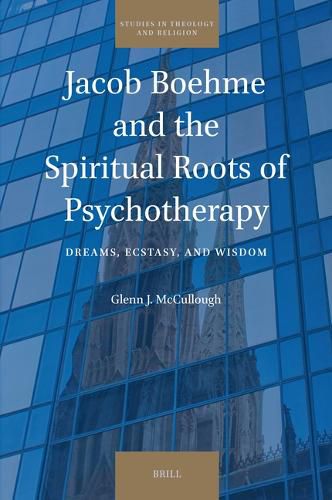Readings Newsletter
Become a Readings Member to make your shopping experience even easier.
Sign in or sign up for free!
You’re not far away from qualifying for FREE standard shipping within Australia
You’ve qualified for FREE standard shipping within Australia
The cart is loading…






Jacob Boehme (1574-1624) was a wildly creative mystical writer whose extraordinary revelations of God, the soul, and the universe have been consigned to obscurity. In this original book, Glenn J. McCullough argues that Boehme is the ultimate source of a key modern movement: psychotherapy. Bringing clarity to Boehme's revelations, McCullough shows how he anticipates the pioneering concepts of Sigmund Freud and C.G. Jung, including their ideas of the unconscious mind and its remarkable potentials. At the centre of Boehme's thought is the figure of Sophia--divine Wisdom--and her seven drives, which guide the soul on a journey of expanded awareness and rebirth. While Boehme has been dismissed as an esoteric outsider, McCullough situates him in the mainstream Western tradition of Augustine and Luther, while highlighting his unique approach to the ecstatic dream-world of Wisdom.
$9.00 standard shipping within Australia
FREE standard shipping within Australia for orders over $100.00
Express & International shipping calculated at checkout
Jacob Boehme (1574-1624) was a wildly creative mystical writer whose extraordinary revelations of God, the soul, and the universe have been consigned to obscurity. In this original book, Glenn J. McCullough argues that Boehme is the ultimate source of a key modern movement: psychotherapy. Bringing clarity to Boehme's revelations, McCullough shows how he anticipates the pioneering concepts of Sigmund Freud and C.G. Jung, including their ideas of the unconscious mind and its remarkable potentials. At the centre of Boehme's thought is the figure of Sophia--divine Wisdom--and her seven drives, which guide the soul on a journey of expanded awareness and rebirth. While Boehme has been dismissed as an esoteric outsider, McCullough situates him in the mainstream Western tradition of Augustine and Luther, while highlighting his unique approach to the ecstatic dream-world of Wisdom.